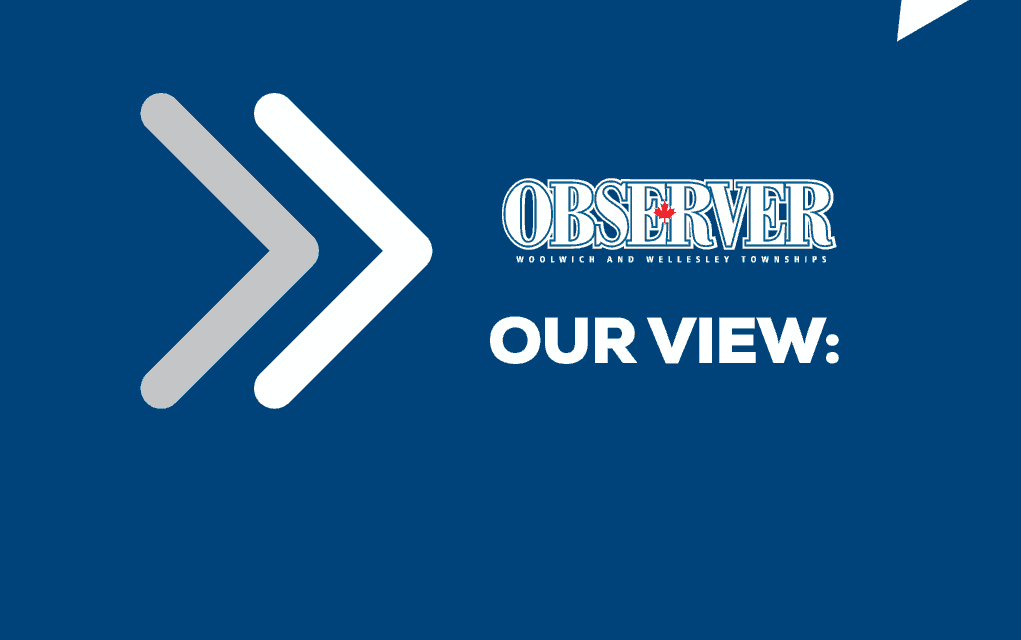Right-wing think tank the Fraser Institute unveiled its annual elementary school rankings this month, and it was a mixed bag for local schools.
Based on the reading, writing and math EQAO scores by Grades 3 and 6 students, the eight schools ranked in Woolwich and Wellesley averaged a score of 6.1, nearly identical to the provincial average of 6.0 out of 10.
But the individual scores were all over the map.
St. Jacobs Public School continues to excel with an 8.5, up a bit from its 8.0 five-year average and good enough for the 149th spot of the 3,047 schools ranked across Canada.
St. Theresa of Avila made a huge jump up to 7.8 from its five year average of 6.2 (391 overall).
St. Clement Catholic School improved five points to 7.4 (603), while Conestogo Public School increased to 7.2 from 6.8 (721).
Others did not fare well.
At the bottom, Floradale Public School received a grade of 3.2, down from its 4.6 average. That puts the school way down the list at 2,841st overall.
Linwood Public School also saw a significant decline, to 4.5 from 4.9 (2,470), as did Wellesley Public School which dropped six points to 4.7 (2,375)
Finally, Breslau Public School continues to struggle below the provincial average at 5.7, but they improved slightly over their average of 5.4 (1,824).
Schools must have both Grade 3 and 6 tests results to be included in the rankings, excluding Elmira’s Riverside, Park Manor and John Mahood schools from the study.
Peter Cowley, the Fraser Institute’s director of school performance studies, says the rankings should help parents hold school officials accountable.
“Parents can be very powerful advocates for improvement if they don’t like the direction their schools are going in,” he said. “If they see a situation like we have with Floradale, where their low (EQAO) performance has flat lined and there has been no improvement indicated, they have a responsibility, I think, to consider using these data and taking them to school and saying, ‘here’s the deal, as far as the Fraser Institute is concerned, and it is backed up by EQAO data, we are really not changing very much and we are achieving at a rate considerably below the average for the province, so what should we be doing?’”
School board administrators often try to steer questions about the rankings towards long-term plans and goals, Cowley added, but parents should not let them off the hook.
“Parents (at low performance schools) should be asking school administrators about what they are doing about an improvement program. They should be asking the schools and the board if they have a program in place and if so, when do they think the results of the plan will show up in test results. It’s a fair question.”
These are public employees, after all, and they are tasked with the incredibly important job of educating our children; they have a responsibility to answer these questions, Cowley said.
Local school boards, on the other hand, are dismissive of the FI school ranking project.
“We don’t support the use of EQAO results to rank schools,” Waterloo Region District School Board superintendent of education Mary Lou Mackie said. “It is not really what the (EQAO) results were ever intended to be used for. We understand that it is something that people naturally want to do and that the Fraser Institute has been doing this for many years, but our main reason for not feeling that the results should be used in this way is because EQAO is really developed to help school board systems and the provincial government identify on a macro level, areas of growth and things we need to consider in terms of improvement.”
John Shewchuk, an official with the Waterloo Region Catholic School Board, issued a similar statement via e-mail.
“As with EQAO and other performance measures that track our schools the information provided by Fraser gives us an additional set of data to consider as we weigh all inputs that may assist decision-making (we are sponges when it comes to solid, reliable data relating to our schools), but using the data to rank schools without taking into account the myriad intangible influences impacting each school is not fair to either the schools being ranked or the general public who may make important decisions based on them. Our best advice is if people are shopping for a school they should attend an open house, ask to meet with a school administrator, request a school tour, talk to parents with children already in the school and then make an informed decision based on their own personal research rather than relying on think tank rankings.”
Full results can be viewed at www.compareschoolrankings.org.









